Friday Feb 20, 2026
Friday Feb 20, 2026
Saturday, 19 December 2015 00:00 - - {{hitsCtrl.values.hits}}
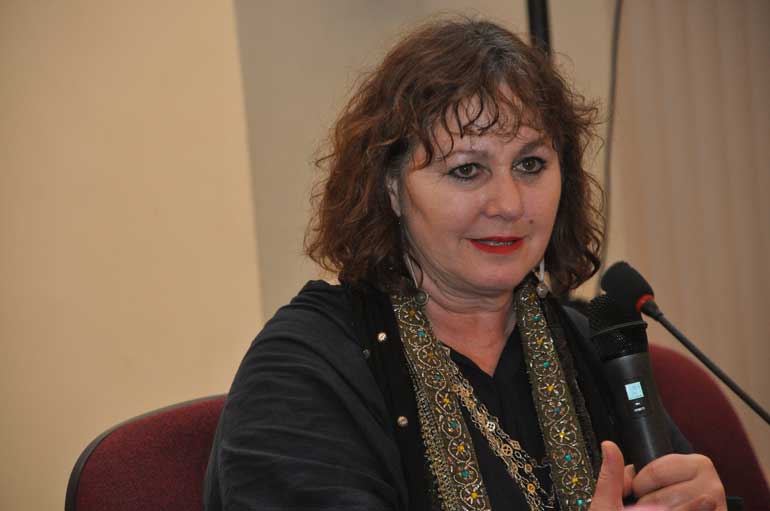
Director Leslee Udwin
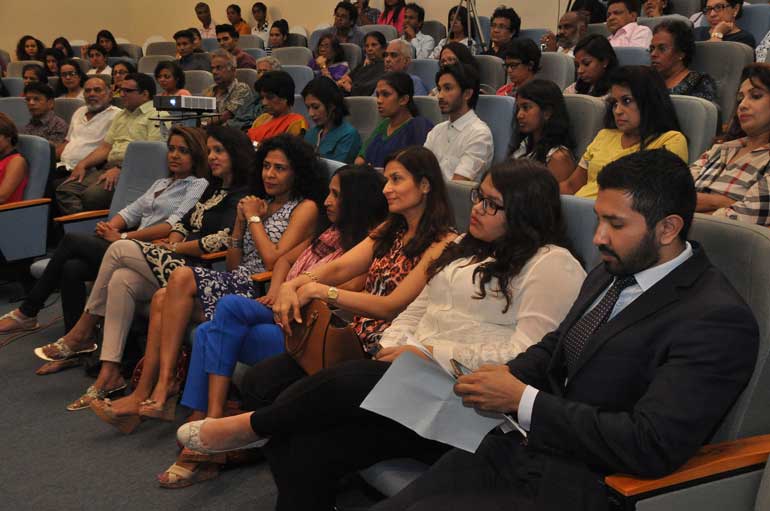
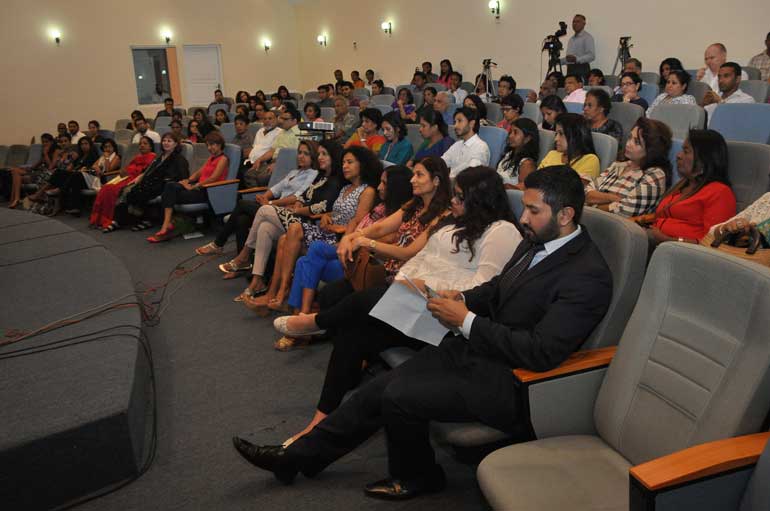
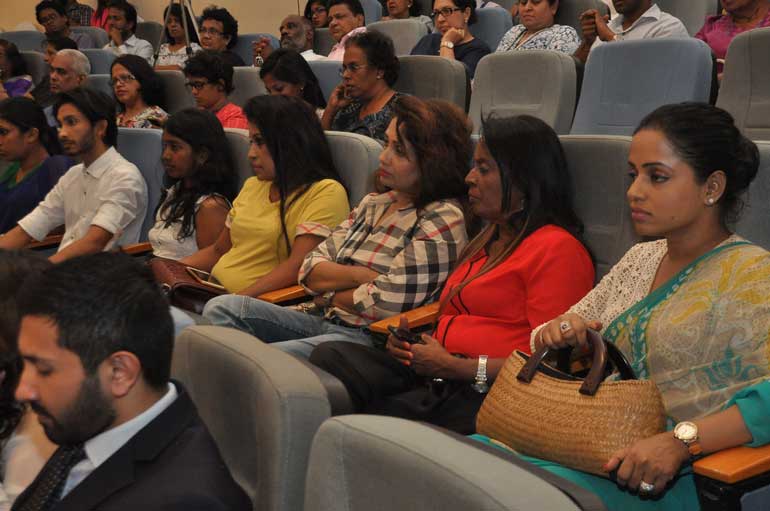
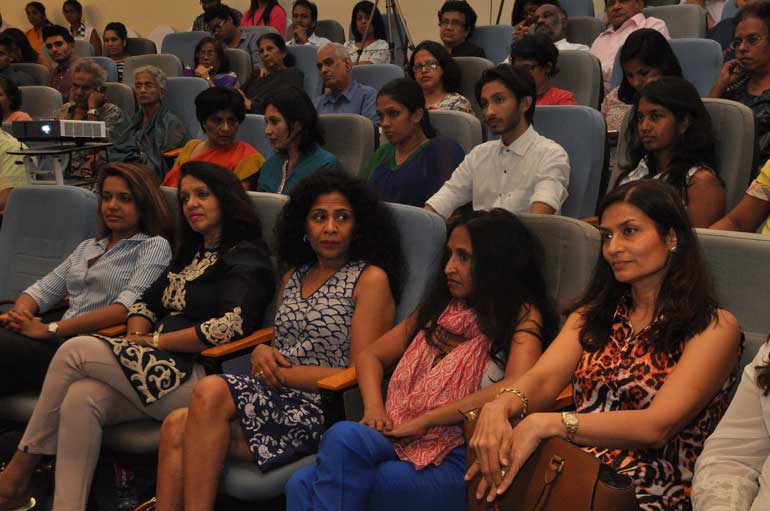
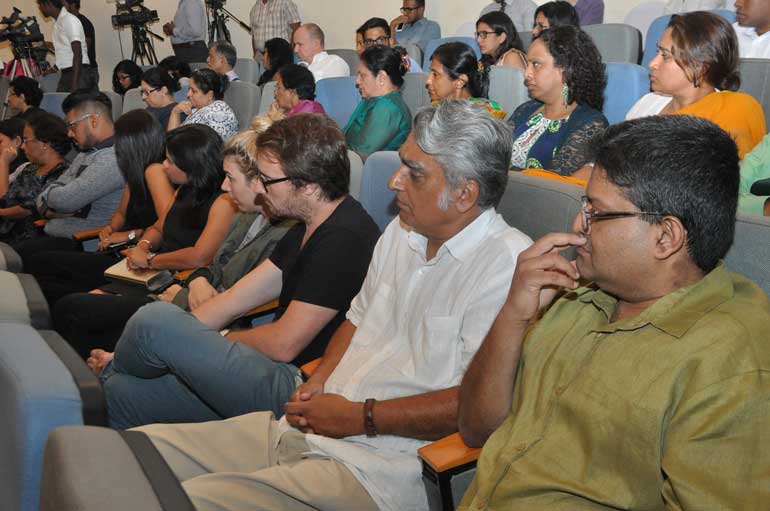
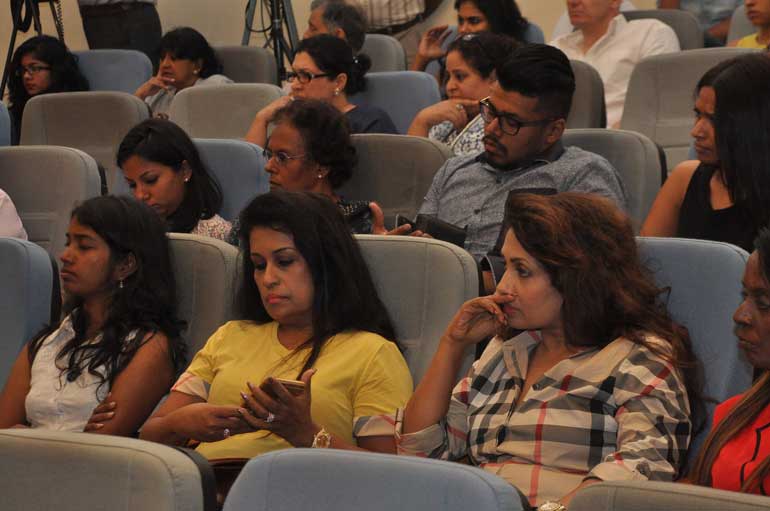
By Shiran Illanperuma
She interviewed four rapists for practice. One, described to her in gruesome detail how he assaulted a five year old child. A survivor herself, she thought that she would feel enraged and attack him. But all she felt was pity. Pity for the rapist and pity for the world that birthed him.
Having honed her interrogation manner in this way, Leslee Udwin would go on to spend over 20 gruelling hours interviewing Mukesh Singh, Vinay Sharma and Pawan Gupta - three of the perpetrators of the gang rape and murder of medical student Jyoti Singh at the back of a bus in New Delhi in 2012.
On the three year anniversary of that incident, Udwin is in Colombo at the Lakshman Kadirgamar Institute, seated between Minister Harin Fernando and Women in Need Executive Director Savithri Wijesekera presenting her documentary India’s Daughter. In mangled Tamil and Sinhala she declares, “I love Sri Lanka a lot”, eliciting a round of applause from the audience. After the screening and Q and A session audience members line up to convey heartfelt gratitude and admiration for her film and her outspoken activism.
In India however, the reception of India’s Daughter has been decidedly more complex and understandably political. The Indian government made moves to ban BBC from broadcasting the film in the country. Soon after its release on YouTube, requests were made to ban it there too and the video-sharing platform complied. Perhaps most surprising of all - for an outsider at least - was the fact that segments of India’s feminist movement were involved in critiquing the film.
An outraged Udwin decried this “coterie of feminists” for attacking the film, stating that there would be a “special place in hell” for women who do not help other women. Indeed, she expresses bitterness and disgust at having been labelled a “white saviour” or more egregiously a “goray b*tch” (goray meaning white in Hindi). She chalks this reaction up to the “chip on the shoulder” that India has from its legacy of colonialism.
A particularly vocal Indian critic of the film has been Kavita Krishnan, Secretary of the All India Progressive Women’s Association and a notable figure in the Indian feminist movement. Krishnan was a pivotal figurehead in the waves of protests that followed the December 16 rape, delivering a stirring speech that went viral online. Her fiery oration would give birth to an iconic slogan during these protests: “Freedom without fear”.
While Udwin claims that Indian feminists like Krishnan conspired to ban the release of the film in India, in an article published on Scroll.in on March 4 Krishnan clarifies: “There is no call for a ban. This is not a free speech issue. There is a call for restraint in airing the film while the appeal is pending”.
What Krishnan refers to here is the fact that the film’s original release was slated for a time when proceedings on the case were on-going and an appeal from the defendants was pending a decision. Referencing a letter sent to the Indian media by a collection of Indian feminists she quotes: “Airing the film India’s Daughter at a time when the appeal is still pending, is counter to the culture of law and justice and the rule of law, which we defend for all citizens”.
In her article, Krishnan also goes on to critique the content and framework of Udwin’s film. “We struggled hard to shift the conversation away from an obsession with voyeuristic details of the Nirbhaya rape alone,” she writes. Udwin however argues that critics like Krishnan (who published this article on the day the film was released) hadn’t even seen the film in its entirety before passing their condemnation.
A viewing of the documentary itself reveals that not too much time is spent delving into the gruesome details of the Nirbhaya rape. In fact a good deal of the documentary attempts to extrapolate both the aftermath of the incident and the socio-cultural elements that lead to it happening. However the few scenes that attempt to dramatically re-enact what may have happened at the back of the bus that night are unnerving. Shadowy silhouettes of men gruffly preparing for rape, the sound of pants unzipping and the dramatic soundtrack set a theatrical mood that arguably fits into Krishnan’s accusation of being voyeuristic.
Another accusation levelled at Udwin by Krishnan was the undue focus on the rapist Mukesh Singh, whose pictures and quotes saturated media shortly after the film’s release. Krishnan particularly objects to the delving into his impoverished family life, which she argued had the effect of depicting rape as a problem stemming from the lower strata of society. “Along with Mukesh Singh, she did not, for instance, seek to interview heads of the IMF or the Intergovernmental Panel on Climate Change or media barons and so on who are accused of sexual violence,” she charged in her Scroll.in article.
But to her credit, Udwin did interview a number of men from different class backgrounds of the rapist. Most notable were the interviews with lawyers M. L. Sharma and A. P. Singh whose outrageously misogynistic comments gained notoriety, though of course both men were likely legally obliged to defend the actions of their clients. “I interviewed these men to show that it was not just a particular class that have this mentality but that it is a widespread and systematic issue,” said Udwin.
Interestingly despite being in some ways the centrepiece of the film, Mukesh Singh had originally declined to be interviewed at all. Krishnan in her article calls to question the ethics of Udwin’s response, which was to approach Singh’s parents and get them to convince Mukesh to consent to being interviewed. Udwin recounts how she approached Mukesh’s mother.
“When I first approached Mukesh and Ram Singh’s mother, she had a stone in her hand. She was screaming. We were journalists and journalists had done nothing for her. She saw us as the enemy and there was no way she was going to talk to us. But I just walked right up to her, cut across that threatening gesture, took her by the shoulders, looked her in the eyes and with my scant Hindi said, “I have a very good heart” and she calmed down”.
While Udwin’s tale makes for a riveting anecdote of crusading bravado, for many journalists trained in ethics, her actions cross a very clear line. Udwin argues that she went on to develop a relationship with Singh’s parents, which may very well be true, but doing so required her to take measures that are invasive and unethical by journalistic standards.
Last and but certainly not least (depending on who you ask) has been the contentious issue of the naming of the film itself. In the midst of all the social, political and ethical complexities of Udwin’s film, a remarkably resonant issue has been the interpretation of the words ‘India’s’ and ‘Daughter’ being used in conjunction. A number of Indian feminists including Krishnan have argued that the title of the film reinforces patriarchal attitudes that define women in relation to men.
In an interview with NPR last month, Krishnan explains: “The title is not saying she is her parents’ daughter but that she’s the nation’s daughter, and that is a very different problem. In India we are continuously told, “You are the nation’s women. You are the nation’s daughters. You are the nation’s mothers. And therefore, behave yourself because Indian women behave themselves.” So to see this reflected unthinkingly is problematic to me”.
On her end, Udwin vehemently rejects this line of argument. Visibly enraged she charged, “I’m sorry but when you’re dealing with an issue as fundamental and as important and crucial and urgent as this, please don’t talk to me about semantics. Please don’t put your energies and your focus into distracting from the issue by saying that the word daughter is a patriarchal word”.
When asked about her opinion on Indian feminist criticisms of her film Udwin does not hold back.
Referring to the collective criticisms levelled at her work she said, “Most of them [the criticisms] I believe are totally misguided, verging on insulting to intelligence.”
Referring to the feminists themselves she said, “They called for this ban because they are egotists and territorial. I will always tell the truth and that is the truth about them. I can empathise with them. They have struggled for every centimetre that they have gained, so they’re territorial, they guard it jealously, but they have to stop that”.
For better or worse India’s Daughter is now out there for public consumption. Udwin believes that the ban in India will not last, but even if it does thousands have already managed to get their hands on bootlegged versions online.
Udwin today shows little interest in pausing to reflect on her film and the nuances behind the criticism it has attracted, no matter how petty they may seem. Recounting a personal confrontation with Krishnan, where the union leader criticised her for not profiling the Indian women’s movement in the documentary, Udwin’s response sums up her stance:
“I’m sorry mate but I’m not your ambassador and this is not a film about your women’s movement.”
Pix by Shehan Gunasekera